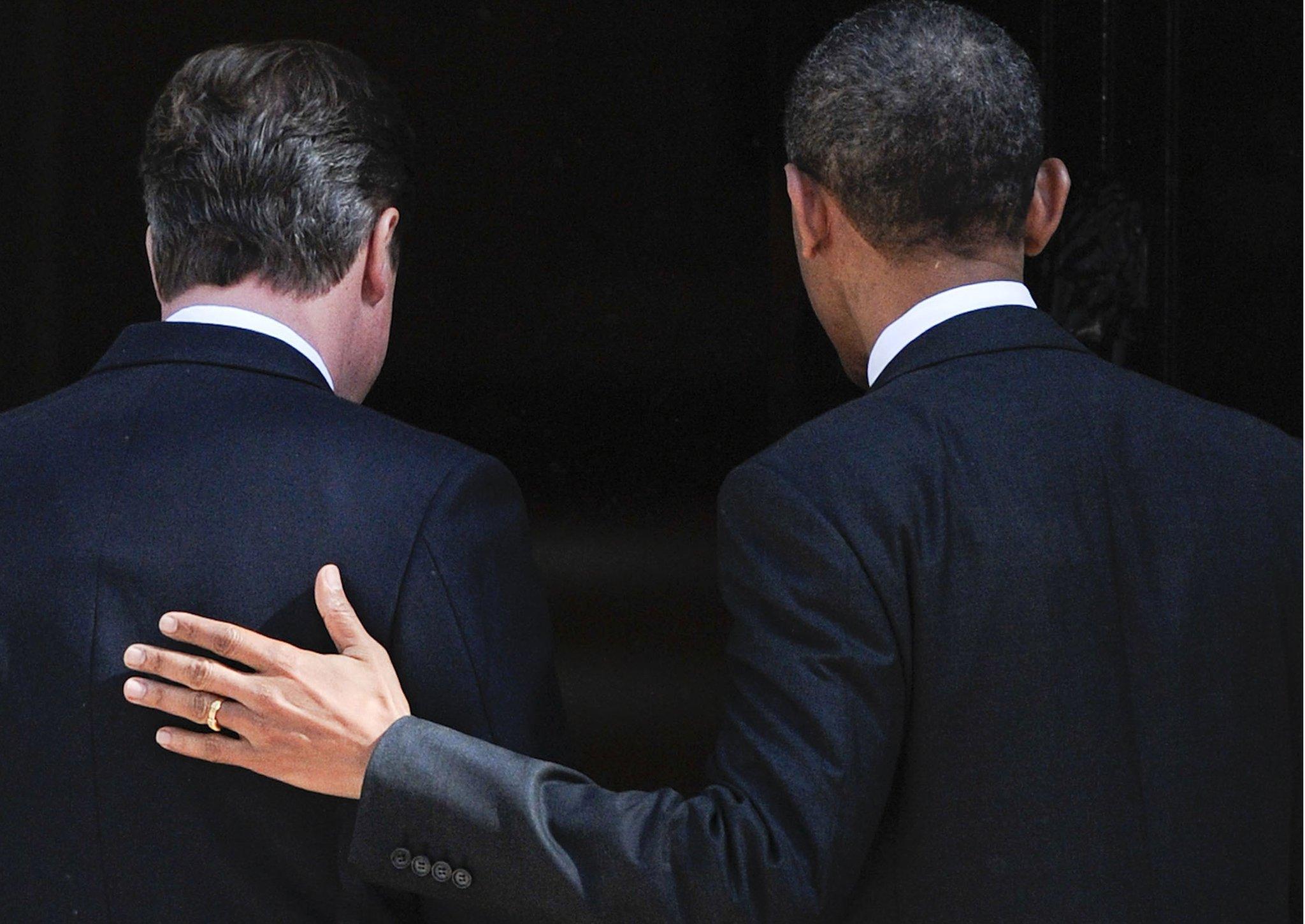How blunt will Obama be on Brexit?
- Published

Will he tiptoe or will Barack Obama be wearing hobnail boots when he stands next to David Cameron in the Downing Street garden and is asked the inevitable question about Brexit?
In his final months in office it has seemed that candour has replaced caution. And the US president was certainly pretty clear about the issue when I interviewed him at the White House last summer - this is what he said:
"I will say this, that having the United Kingdom in the European Union gives us much greater confidence about the strength of the transatlantic union and is part of the cornerstone of institutions built after World War II that has made the world safer and more prosperous.
"And we want to make sure that United Kingdom continues to have that influence. Because we believe that the values that we share are the right ones, not just for ourselves, but for Europe as a whole and the world as a whole."
But what the US president hasn't yet done is spell out what he thinks are the consequences of a British departure.
Does he believe it would damage the special relationship? Would it destabilise other European economies? Or lessen Britain's position in the world? He certainly seems to imply that in his answer. His advisors certainly think so. But will he say so publicly? Certainly there has been enormous pressure from Vote Leave campaigners for the president to keep schtum.
Barack and Dave have played ping pong together, flipped burgers, gone to the basketball and eaten hot dogs. At times they really have looked like besties. But the special relationship also means being candid. That's what White House officials say will guide the president's comments on Brexit.
He is likely to preface his remarks with an "I'm not going to tell the British people what to do", before going on to say that the case is overwhelming on why Britain should remain. I suspect we won't be left in any doubt what he thinks.
Indeed, David Cameron said on Wednesday: "This decision is a decision for the British people and the British people alone... personally I believe we should listen to advice and I struggle to find the leader of any friendly country who thinks we should leave."
There's been bluntness on other issues too. Look at his comments about the importance of Nato countries maintaining defence spending. That led to a furious row when it seemed Britain was about to cut the MoD budget - the president apparently telling Mr Cameron that Britain had to pay its fair share - though Barack Obama sought to play that down when I spoke to him last summer.
President Obama covered a wide range of issues in his interview with the 大象传媒's Jon Sopel
OBAMA: I wouldn't say pressure. I think I had an honest conversation with David that Great Britain has always been our best partner. Well, you know, I guess you could go back to 1812 and that would (LAUGH) you know, that -
SOPEL: When we tried to burn this place down?
OBAMA: Yeah, right, right. But that's ancient history -
SOPEL: History.
OBAMA: In modern times there's no country where we have closer affinity in terms of values, and on the international stage a nation with greater capacity. And so I think David understands that part of the greatness of Great Britain, of the United Kingdom is that it is willing, as we are, to project power beyond our immediate self-interests to make this a more orderly, safer world.
Obama admits Libya was 'worst mistake'
How did Obama and Cameron fall out?
How Obama learned the limits of US power
But in a recent interview with Atlantic magazine, the president condemned European "free riders" who just looked to America to do all the heavy lifting on defence. And he was even more pointed about Britain and France's role in Libya - he told Fox last week that the mess that Libya had become was his greatest failure.
And he pointed the finger at David Cameron too - accusing the British leader of having become distracted after the 2011 intervention in Libya. Ouch. Those comments enraged Downing Street, and brought a swift and telling "clarification" from the White House. David Cameron had been "as close a partner as the president has had", they said.
The prime minister won't be complaining though if the president delivers some of that bluntness to the Vote Leave campaigners.